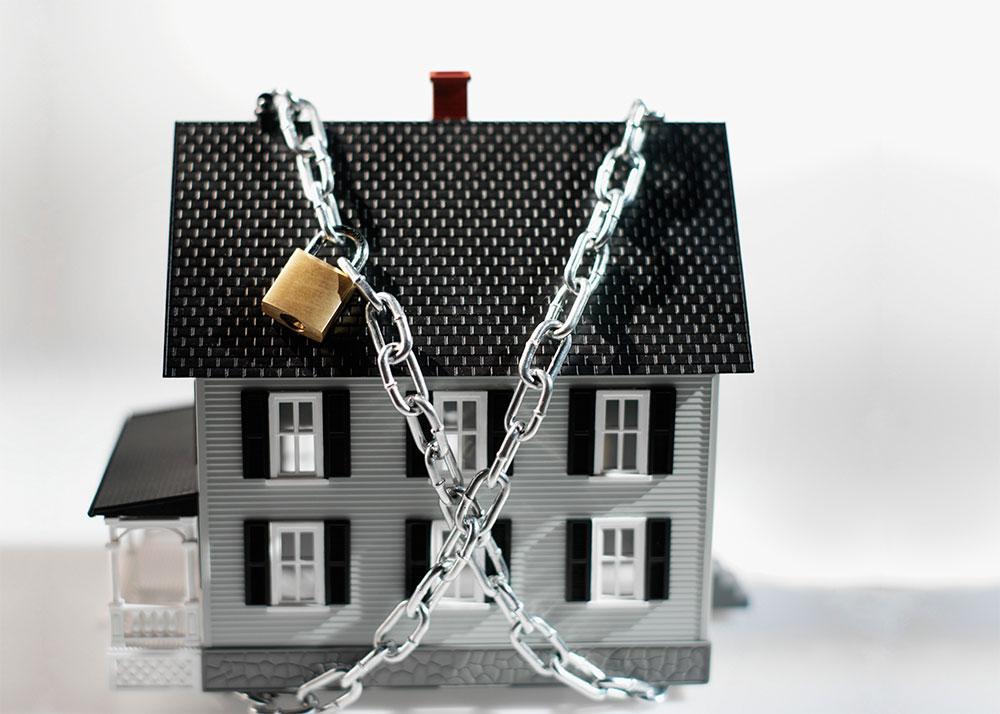Buying a second home with encumbrances can lead to problems and unnecessary expenses. That is why it is important to check the property for 'cleanliness' before the transaction. We will tell you all the details and methods of checking below.
1. What is an encumbrance?
A charge is a legal restriction or obligation placed on a property which may affect its value, sale or use. An encumbrance can be imposed as a result of various factors such as mortgage arrears, litigation, rights of others over part of the property and others.

It is important to note that in Cyprus, there is no concept of 'registration at place of residence'. Therefore, encumbrances with 'extra registered persons' do not occur here.
In Cyprus, the following types of encumbrances may be imposed on a property
- Pledge or mortgage: The property may be pledged to a bank or other lending institution as security for a loan. In this case, the buyer must either repay the debt or enter into an agreement allowing the mortgage to be transferred.
- Court-ordered sale: in the event of a court case, there may be an injunction preventing the sale or transfer of the property until the dispute is resolved.
- Other owners: in the case of co-ownership or divorce, the rights of others to the property may become a charge, restricting its sale or transfer.
- If the actual area of the property does not match the official documents, this can cause problems when selling or changing the status of the property. This is particularly the case with plots of land.
- Illegal transfer of property: Property that has previously been transferred in contravention of the law may be subject to the risk of the transaction being cancelled.
- Partial state ownership: In some cases, part of a property may be owned by the state, which limits the owner's rights to use and dispose of the property. This could be an access road or an area to be given to a park.
It is important to note that all encumbrances must be registered and approved by the relevant authority. In Cyprus this is the Land Department.
2. Difficulties that can arise when buying a property with a mortgage
It is not difficult to imagine how unpleasant it is to receive a "surprise" in the form of a mortgage when the purchase and sale process has already begun. It is even more unpleasant when the problems arise after the transfer of title to the new owner has been signed and the money has been paid in full or in part.

When buying a property with an encumbrance, the following difficulties may arise
- Delay in completing the transaction. The presence of encumbrances requires additional approvals and verification of documents, which can significantly slow down the purchase process. It will be almost impossible to complete the transaction urgently.
- The need to provide additional documentation. In the presence of encumbrances, it will be necessary to obtain additional documents, such as creditor approvals, certificates of release from arrest, consent of other owners and others. This complicates and slows down the process of preparing the transaction.
- Inability to complete the transaction. In some cases, the presence of encumbrances may make the transaction impossible. By the time these circumstances are identified, the prospective owners may have already spent a considerable amount of time, effort and money preparing for the purchase.
- Risk of the transaction being invalidated. If the encumbrance is not identified before the sale contract is signed, there is a risk that the transaction will be set aside by the court after completion. This is the most serious risk and can lead to loss of ownership and financial loss.
In order to avoid the above problems, it is sufficient to carry out the verification in the first stages - before the direct collection of documents and the execution of the transaction.
3. How to check a Cyprus property for encumbrances
Before purchasing a property in Cyprus, it is essential to carry out a detailed title search to avoid unforeseen complications and reduce potential risks.

3.1 Early steps
The first step is to contact a local lawyer who has a thorough knowledge of Cyprus law and can assist in checking all legal aspects of the transaction. An experienced lawyer will be able to identify hidden problems that may have gone unnoticed during the due diligence process and offer solutions to address them.
IMPORTANT: In Cyprus all documents are in Greek. You must be fluent enough to understand the subtleties. If the buyer's level of Greek is low, the only way out is to use a specialist.
Next, it is worth checking the history of previous property transactions by requesting the relevant information from the Land Registry. This will allow you to ensure that any previous transfers of ownership are legitimate and to rule out the possibility of legal errors and inaccuracies.
It is then important to compare the actual boundaries of the property with those shown on the title deeds. If the boundaries of the property do not match the information on the title deeds, this can lead to serious disputes and complicate the purchase process. This may concern both the boundaries of the land and illegal alterations to the property.
You should also visit the Land Registry office to check that the title is up to date and that the property is free of any encumbrances such as mortgages or court orders. Asking for the most recent copy of the title deeds from the seller will allow you to check that the document reflects the current condition of the property.

Finally, special attention should be paid to the absence of debts associated with the property. This is important in order to avoid a situation in which the purchased property is jeopardised by the debts of the previous owner.
It is necessary to check not only for the presence of encumbrances, but also for other "problem" moments. You can read about how to do this in our article.
3.2 Advantages of Buying a First Time Home
Buying a new property in Cyprus is much safer and more profitable than buying a second property. The main advantage of a new property is that there are no encumbrances such as liens, mortgages or third party rights. New properties usually have no history of previous transactions, minimising the risk of legal problems and hidden debts. In addition, new buildings are built to modern standards, which guarantees high quality and the absence of hidden defects.

For foreign buyers, the purchase of a new property in Cyprus also opens up the possibility of obtaining a simplified Permanent Residence Permit (PRP). This requires the purchase of a property worth at least €300,000. In this case, the procedure for obtaining a permanent residence permit is greatly simplified and does not require compliance with a number of conditions that are mandatory for other categories of applicants. For example, there is no need to undergo lengthy checks or pass an examination on knowledge of the national language (Greek). This makes the purchase of a new property particularly attractive to those who wish to obtain the right to reside on the island quickly and easily.
In addition to the purchase of a property worth €300,000 or more, there are other requirements for obtaining permanent residency in Cyprus. The foreign buyer must confirm the existence of a stable and sufficient income received outside Cyprus (for 2024 - 50 thousand euros per year for the applicant). It is also necessary to have a bank account on the island with a minimum deposit in order to secure residency.
4. Recent changes in Cypriot legislation
Not long ago, on 12 December 2023, the amendments introduced by Law No. 132(I)/2023 entered into force in Cyprus. These innovations have significantly strengthened the legal protection of purchasers in property transactions, making the process of transferring ownership safer.
According to the new rules, all contracts signed after this date must include an extract from the property register provided by the Land Department. This document must contain up-to-date information on all existing encumbrances on the property and must be issued no later than five working days before the completion of the transaction. Failure to comply with this requirement will result in administrative fines being imposed on the vendor and the mortgagee.

With regard to mortgaged properties, compulsory declarations are now being introduced:
- Type A declaration: must be signed by both the seller and the mortgagee, confirming the existence of the mortgage and informing the buyer of its existence. The buyer's signature is required to complete the transaction.
- Type B declaration: activated once the buyer has paid 95% of the agreed amount. It allows the transfer of ownership to commence even if the mortgagee has not yet released the property from the lien.
- Type C declaration: is a written agreement by the buyer to submit the title deed to the Provincial Land Office without completing a Type A declaration.
These legislative changes significantly increase the level of protection of buyers' rights and make the process of buying property in Cyprus more transparent and secure.
When buying a second home abroad, including Cyprus, it is highly recommended that you use the services of lawyers. They are familiar with all the intricacies of the buying and selling process and speak the official language of the country. The help of a specialist is a guarantee of reducing the risks to almost zero. You can contact the DOM Real Estate Agency for all kinds of services related to buying, selling or renting a property.

Read also:

